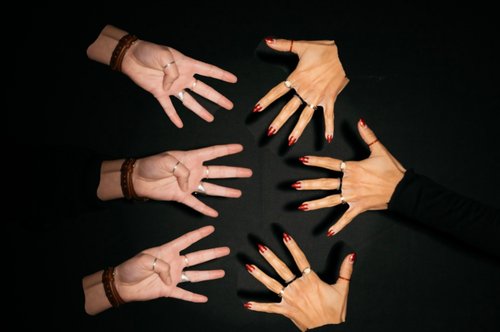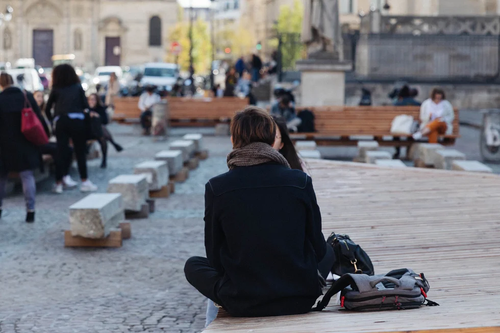Why we should stop saying ‘low-skilled’ jobs
Apr 25, 2022
5 mins


US-based freelance journalist.
The pandemic in the US may be waning and many restrictions have been lifted, but the signs outside homes thanking “essential workers” endure. New York City even held a parade last summer to celebrate not just teachers and healthcare workers but also the transport, food and store staff who remained at their posts so everyone else could stay at home during the height of the crisis. So it was hardly surprising that the recently elected New York mayor Eric Adams found himself in hot water when he made an off-the-cuff remark referring to “low-skilled workers.” The ensuing controversy reopened the debate around the value placed on certain jobs and the role that class plays in the US workplace.
Low-skilled or low-paid?
The hullabaloo all started when the mayor was making the case for office staff to return to the city where they would use the services of low-paid workers, such as messengers. He said: “My low-skilled workers – my cooks, my dishwashers, my messengers, my shoeshine people, those who work in Dunkin’ Donuts – they don’t have the academic skills to sit in a corner office.” His words were met with a barrage of negative reaction, not least given that these are tough jobs that do require skills. Leading the charge was New York Congresswoman Alexandria Ocasio-Cortez, who tweeted: “The suggestion that any job is ‘low skill’ is a myth perpetuated by wealthy interests to justify inhumane working conditions, little/no healthcare, and low wages.” The United States may have a reputation for being a classless society, but that is not the experience of quite a lot of its workers.
“The suggestion that any job is ‘low skill’ is a myth perpetuated by wealthy interests to justify inhumane working conditions, little/no healthcare, and low wages.”
Bad attitude about some jobs
Despite all the hero-worship of “essential workers” when lockdowns were in force, many of the jobs Adams referred to still don’t attract the type of wages and conditions that would allow workers to live dignified lives, say campaigners. Minimum wages in New York City have reached $15 an hour but living in one of the world’s most expensive cities can be a struggle for many of the people who actually make it function. There is a bad attitude in the US about these low-paid jobs, says Elizabeth Walle, development coordinator at the Food Chain Workers Alliance. “The prevailing idea in the US is that if you don’t like your job, you should get a new one. If you can’t get a new job, work harder. And if you don’t like your boss, become the boss,” she says. The idea of taking control in this way can sound inspiring, but the reality is often quite different.
“The prevailing idea in the US is that if you don’t like your job, you should get a new one. If you can’t get a new job, work harder. And if you don’t like your boss, become the boss.”
The problem is that many low-paid workers struggle to find better paid jobs, especially women, people of color and workers from lower educational backgrounds, according to a study by the Brookings Institute. It cites data which shows that “there simply are not enough jobs paying decent wages for people without college degrees (who make up the majority of the labor force) to escape low-wage work.”
The study also shows the shocking effect of low-wage work on families. It says that “30% of low-wage workers (16 million people) live in families earning below 150% of the poverty line. These workers get by on very low incomes: about $30,000 for a family of three and $36,000 for a family of four.” In 2019, the average annual real wage was almost $65,000.
Demanding better
Change is coming as workers are increasingly demanding a better deal. An unemployment rate of just 3.6% – the lowest in the US since 1969 – and a shortage of labor has prompted many workers to leave their jobs in search of better roles. This, in turn, has forced employers to increase wages, though this has begun to taper off and is also being tempered by rising inflation.
At the same time, there have been some major pushes to take on employers that refuse to listen to workers’ demands. At Amazon and Starbucks, but also at universities, hospitals, classrooms and newsrooms, workers have been joining unions to tip the balance of power. What’s happening in the US is powerful and new, says Jennifer Sherer, senior state policy coordinator for the Worker Power Project at the Economic Policy Institute. “I think there’s something special right now about the convergence of economic conditions, pandemic conditions and consciousness about racial justice, gender justice, and worker justice, all providing for a new generation of workers,” she says.
“There’s something special right now about the convergence of economic conditions, pandemic conditions and consciousness about racial justice, gender justice, and worker justice, all providing for a new generation of workers.”
This movement has seen workers recently winning a contract at Burgerville, a fast food outlet in the north west US, which raises wages and provides paid annual leave, parental leave, a focus on safety at work and better job security. Workers at Blaze Pizza in Minnesota also won back $28,000 in unpaid wages.
A new class of diversity
Aside from the push to improve the lot of low-paid workers in the US, there is also emerging thinking on class in the workplace. Diversity is the big buzzword when it comes to new professional hirings and it is rare for job candidates not to be asked to fill out forms stating what race and gender they identify with. But candidates are still expected to list degrees and lots of experience in their résumés, essentially weeding out those with different backgrounds and with non-traditional educational routes.
This is not just bad for the people who are shut out of better paying, less stressful jobs, it is bad for businesses and society, says Professor Paul Ingram in a research paper entitled The Forgotten Dimension of Diversity. It cites studies which show that individuals from lower-class backgrounds are less self-centered, more motivated and can make better leaders. Only a quarter of US adults were raised by a parent with a degree, therefore “in discriminating against people who come from a lower social class, we’re discriminating against a majority of the eligible workforce – a grossly harmful indulgence,” the paper states.
“In discriminating against people who come from a lower social class, we’re discriminating against a majority of the eligible workforce – a grossly harmful indulgence.”
Ingram has some paths out of the problem including stopping the practice of demanding degrees for jobs that don’t really need them. Companies also need to specifically add social class into their diversity goals and they need to be aware of how it intersects with race. “I’ve found that for workers from higher social-class origins, race is not a factor in determining who becomes a manager. For people with lower social-class origins, however, race does matter: Blacks from lower-class origins are substantially less likely than whites with similar backgrounds to become managers,” he writes.
Finally, employers need to stop promoting solely from the same pools of staff. “People with higher origins cluster in high-status departments; those with lower origins work in less-visible groups. Because companies often seek candidates for managerial roles from only a handful of departments, the odds are stacked against some of the best candidates simply because they work in the wrong place,” according to Ingram.
‘Elite mediocrity’
Maurice Mitchell, national director of the Working Families Party, a small political party founded in New York, says the fact that there was such a backlash against the New York mayor’s comments shows that change around social class is happening. “What’s telling is the fact that he got so much push-back. That tells me that the culture is shifting,” he says.
People are becoming “wise to the reality of elite mediocrity,” he adds. “We need to believe in the value, intelligence and ingenuity of working class people and not be seduced by the lie that people in elite spaces should naturally lead,” he says. Whether the US can open up its workplaces to become truly inclusive remains to be seen. For many companies that continue to face skills shortages, however, there may be no other choice.
“We need to believe in the value, intelligence and ingenuity of working class people and not be seduced by the lie that people in elite spaces should naturally lead.”
Photo: Welcome to the Jungle
Follow Welcome to the Jungle on Facebook on LinkedIn and on Instagram and subscribe to our newsletter to get our latest articles every day!

More inspiration: Society for workers

How auto unions are advancing the idea of a shorter working week for all
As support for the 4-day workweek keeps gaining steam, the industry that ushered in the 5-day workweek is still at the forefront
Nov 27, 2023

“Many American workers and families break even at best.”
An economics reporter breaks down the complex landscape of today's economy.
Nov 23, 2023

When your workplace is literally toxic — but you’re a kid
In the US, caustic chemicals, scalding appliances, and dangerous machinery are all in a day’s work for a growing body of exploited children.
Nov 07, 2023

So, are robots really coming for our jobs? A conversation with futurist Gary Bolles
Fears of an AI apocalypse loom large, but what are experts saying about the future?
Mar 07, 2023

With a universal income, will we stop working?
Universal income is gaining traction in Europe, but questions about essential jobs remain…
Dec 21, 2022
The newsletter that does the job
Want to keep up with the latest articles? Twice a week you can receive stories, jobs, and tips in your inbox.

Looking for your next job?
Over 200,000 people have found a job with Welcome to the Jungle.
Explore jobs